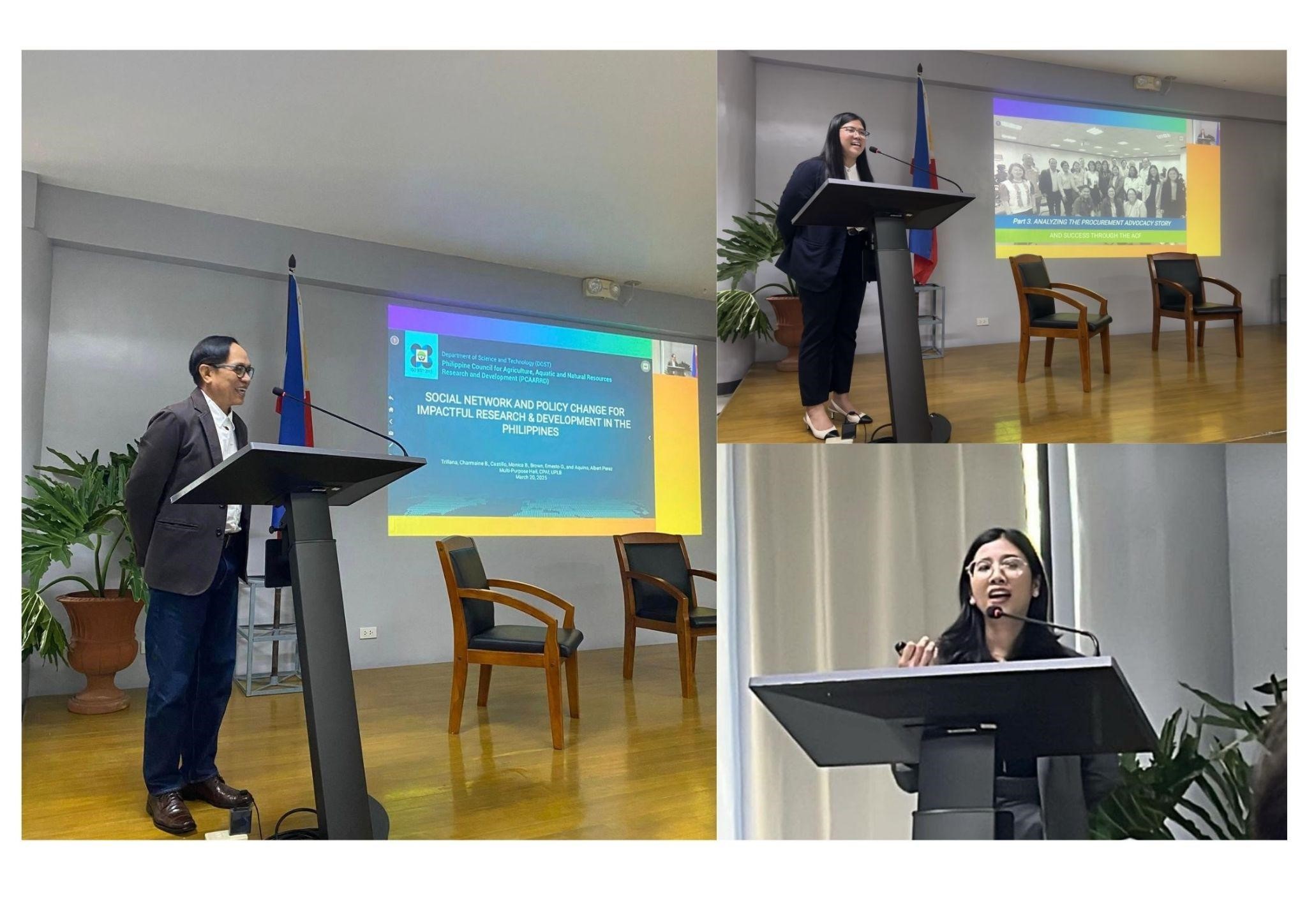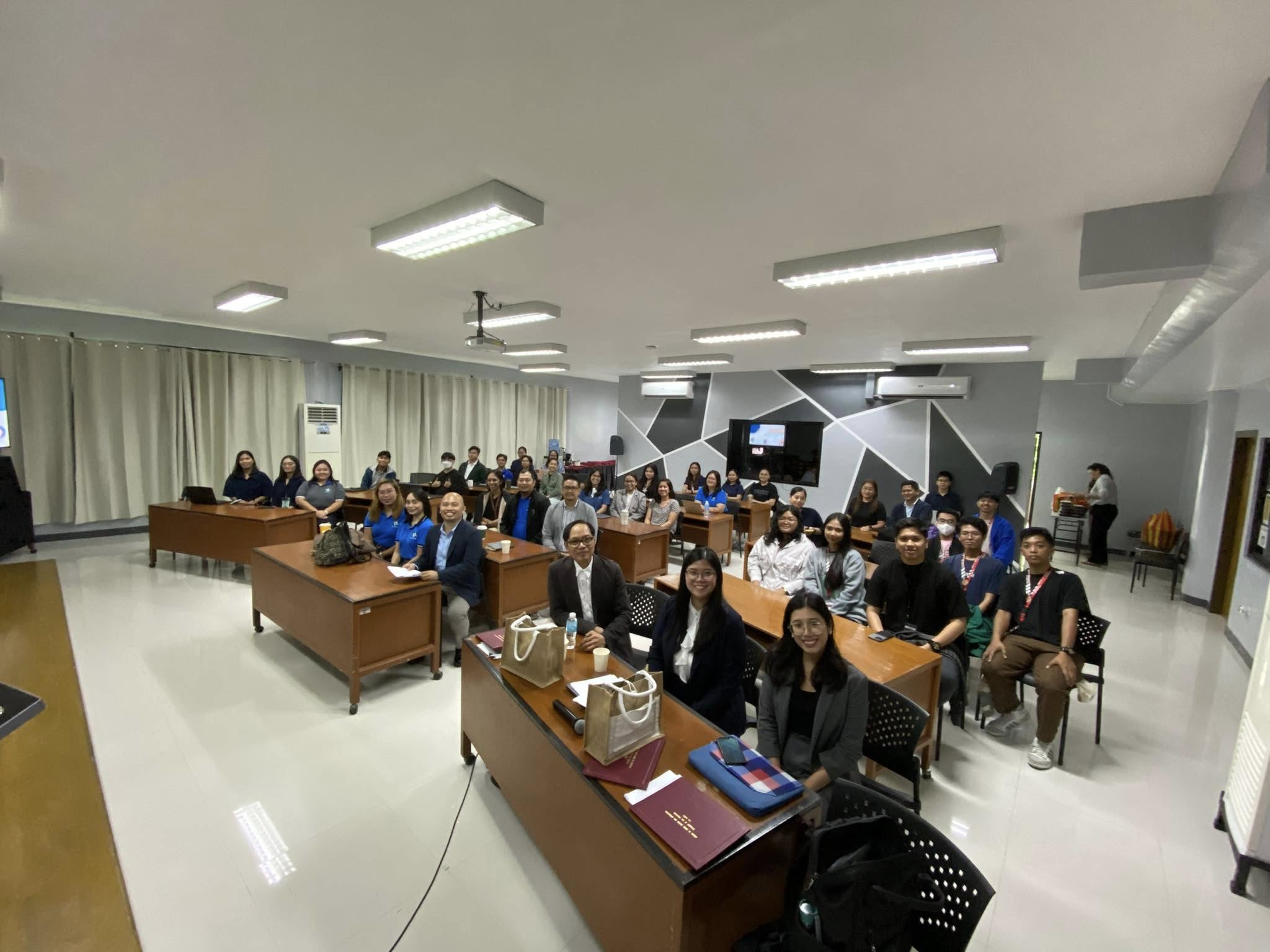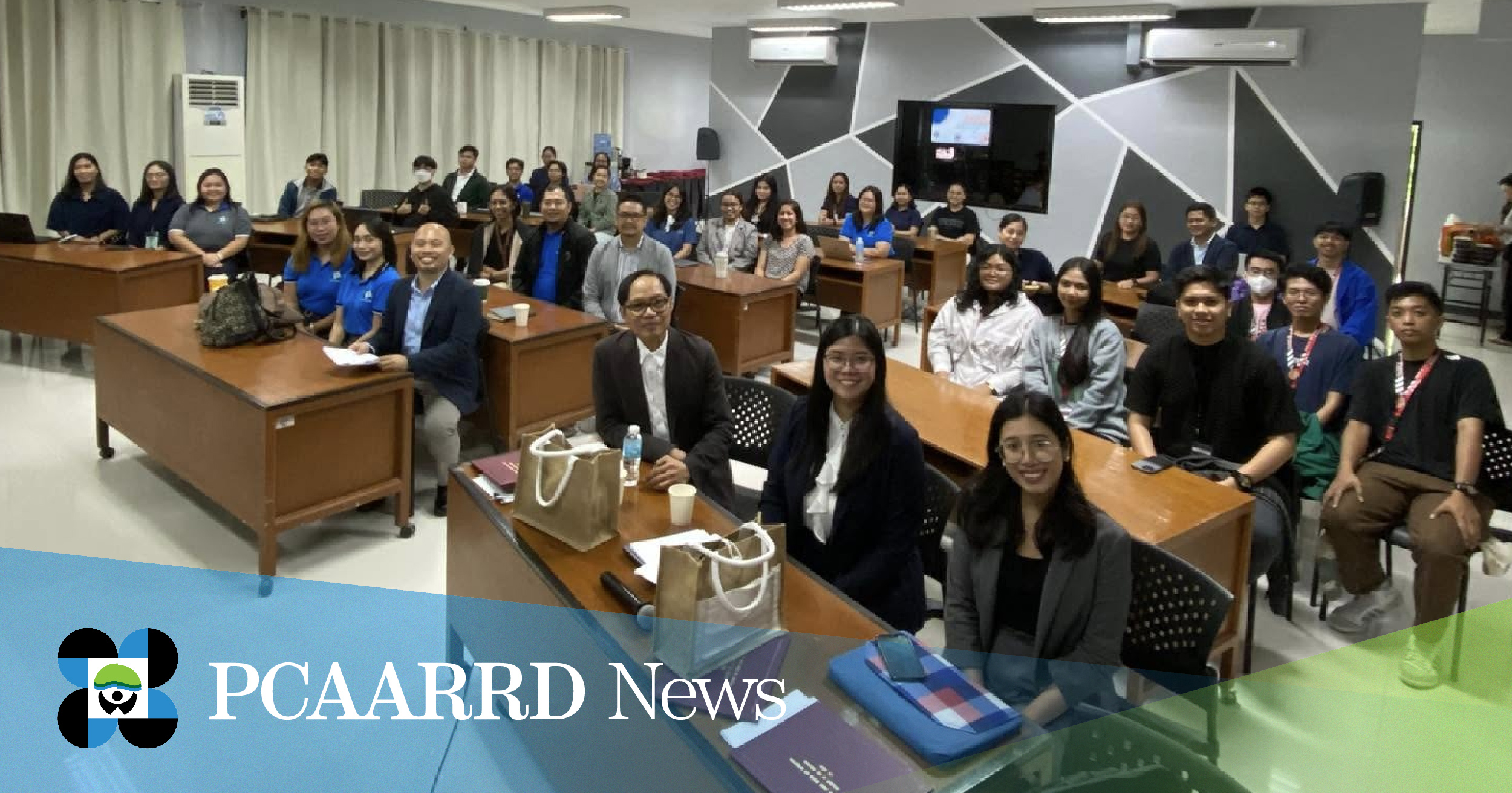The Philippine Council for Agriculture, Aquatic and Natural Resources Research and Development of the Department of Science and Technology (DOST-PCAARRD) took part in a seminar about how social networks drive policy change and enhance research and development (R&D) efforts in the country. Spearheaded by the College of Public Affairs and Development of the University of the Philippines Los Baños, the seminar, “Connecting Minds for AANR Progress: Building a Dynamic Academic and Research Network in the Philippines,” took place on March 20, 2025, in Los Baños, Laguna.
The DOST-PCAARRD team was led by Ms. Monica B. Castillo, unit head of the Socio-Economics Research Division - Policy Analysis and Information Unit (SERD-PAIMU). She was joined by Ms. Charmaine Angela B. Trillana and former SERD Director, Dr. Albert Perez Aquino.

During the seminar, DOST-PCAARRD shared insights on how policy networks shape advocacy strategies and drive policy reforms. The team highlighted the government procurement reform–a longstanding advocacy of DOST-PCAARRD–as a key case study. Their discussion emphasized the importance of revisiting theoretical foundations, reflecting on past advocacy experiences, and documenting best practices to develop a standardized approach for future advocacy efforts.
Dr. Aquino’s presentation addressed fundamental questions on the nature of social networks and policy change, emphasizing their importance and the need to critically examine the factors behind successful advocacy. He introduced the Social Network Theory, Policy Networks, and the Advocacy Coalition Framework (ACF) as key tools for analyzing policy influence and advocacy outcomes.
Using ACF, Ms. Castillo and Ms. Trillana examined the success of procurement reform advocacy. They focused on policy problem identification, policy analysis, and policy development and advocacy. They highlighted how the Science, Technology, and Innovation (STI) advocacy coalition employed key strategies, including resource mobilization, policy-oriented learning, strategic framing, engagement with authoritative figures, and negotiated agreements. These approaches played a crucial role in advancing significant policy reforms in R&D procurement.

Dr. Aquino concluded the session by emphasizing three key takeaways. First, the strategic use of social networks plays a crucial role in integrating STI provisions into the legislative process. Second, policy-oriented learning (e.g., continuous stakeholder consultations, capacity-building initiatives, and forums) helps in shifting policy perspectives and decision-making. Lastly, organizations can leverage political opportunities to enable the passage of key reforms.

